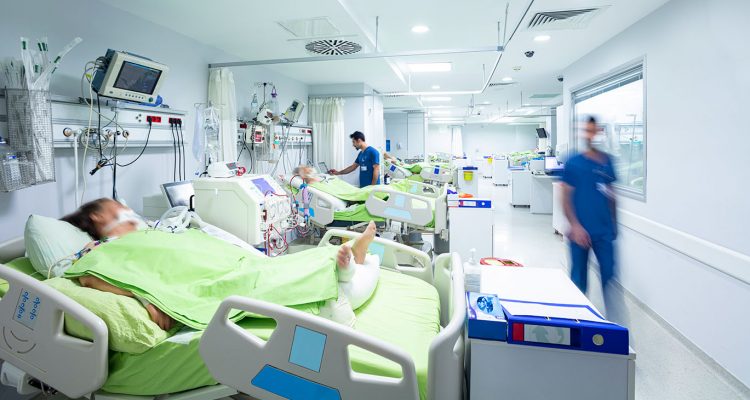By J.C. Watts, founder and chairman of J.C. Watts Companies
Washington, D.C., city attorney George Valentine was Black, brilliant, and fit. But after contracting COVID-19, he became so weak, he had trouble moving and even speaking. When it got to the point where he could barely breathe, George called an ambulance and waited on the steps of his house for it to arrive. Every second he waited must have seemed like an eternity. Two days later, George died. He was 66 and had suffered from diabetes and high blood pressure before getting sick with the coronavirus.
New research seems to confirm that, across the nation, the coronavirus has disproportionately impacted Black people, with death rates more than twice as high as that for any other race. Why is this happening-and can we do anything about it?
There are several explanations for the disparity, and most have to do how we live, where we work, and our underlying health conditions. There are also factors that are within our immediate control that we can all do right now to protect ourselves, but that many in our community are failing to do.
The Centers for Disease Control and Prevention (CDC) cite several possible reasons that Black Americans are more affected. One is that many of us live in more highly populated areas where it’s more difficult to practice physical distancing from one another. Many of us also live in multi-generational households where it’s easier for younger family members to spread the virus to more vulnerable elderly members. This is especially true for lower-income households with smaller living spaces.
Another reason is that a large percentage of African Americans hold frontline service industry jobs as food servers, cleaners, and personal-care providers, and in fields such as nursing that are all considered essential during the pandemic, and they bravely continue to go to work each day.
One other big factor is that, sadly, our people also tend to have more underlying medical conditions-like obesity, diabetes, and hypertension-that make us more vulnerable.
While many of these factors are difficult to change in the near term, we can do some things immediately to reduce our risks. In my own community in Oklahoma, I’ve witnessed many Black folks not wearing masks or practicing any degree of physical distancing in public. A lot of people just plain aren’t following recommendations to keep themselves and their families safe.
Let’s be real for a minute. Some of this stems from past experiences with government that make people skeptical about what they’re hearing from public officials. For some, it’s the bitter memories of government-enforced segregation and other racist policies. For others, it’s the fact the young Black men have more negative encounters with the police, and people don’t want to wear masks and give anyone an excuse for mistaking them for criminals. For others, it’s that politicians have made promises to us for decades and have failed to make good. Why trust them now?
Despite all this, please don’t put your health at risk. We have to do all we can to protect our communities and our loved ones from being exposed to infection.
First, avoid close contact with people who are sick. Being in the same enclosed room with somebody who has the virus can lead to infection. Second, keep at least six feet between you and others if you have to leave home. People can be infected even if they’re not showing symptoms. Third, wash your hands or sanitize them often and for at least 20 seconds. Also avoid touching your face, mouth, and eyes with unwashed hands.
I know the advice about wearing masks is a tough one for many folks, but perspectives have changed during this pandemic. So, cover your mouth and nose with a bandana or other face covering if you have to leave home. The mask provides some protection for others in case you’re infected and don’t know it.
Finally, be sure to get medical help if you have any flu-like symptoms or have trouble breathing, persistent pain in your chest, a fever, or a dry cough.
As I write this, The Heritage Foundation’s National Coronavirus Recovery Commission, of which I’m a member, is wrapping up its final report offering recommendations to help us all recover from this pandemic. The commissioners are deeply concerned that COVID-19 has hit minority communities so hard and are urging medical researchers to look into how we can prevent this disproportionate impact in the future.
The commission is also recommending ways that our churches and community institutions can be a positive force for encouraging people to take preventative actions to stop the spread of COVID-19.
I’m hopeful that our nation will conquer this disease and that together, we will emerge from this chapter in our history stronger than before. But ultimately for that to happen, the cure must start with us.
J.C. Watts is founder and chairman of J.C. Watts Companies, chairman of Black News Channel, and a member of National Coronavirus Recovery Commission.

